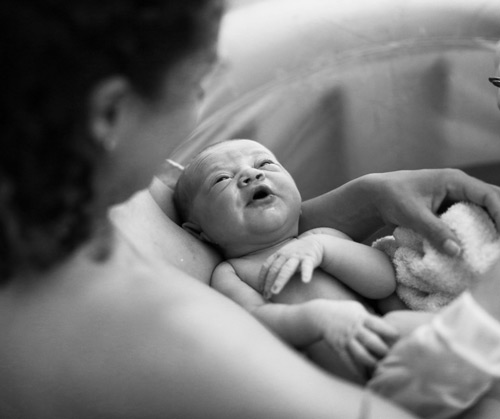Birth Injury Myths and Facts

Like most expectant parents, you put your trust in the medical system to protect your newborn from complications that can happen before, during, and after birth. The joyous occasion of welcoming new life can turn into a devastating reality when a fetus or newborn suffers an injury or harm. Even during complex deliveries, it is a physician’s responsibility to anticipate potential complications that could result in injuring an infant during the delivery process.
Birth injury refers to a physical injury, brain injury, nerve injury, or medical condition that an infant sustains as a result of complications during pregnancy, labour, delivery, or afterbirth treatment. For example, oxygen deprivation can lead to a diagnosis of hypoxic ischemic encephalopathy (HIE), which is often linked to a failure in monitoring the mother and child or a failure to intervene in a timely manner. Complications such as breech birth, delayed cesarean, and fetal distress can often be avoided with proper monitoring. Minor birth injuries will often heal on their own; however, severe cases may require extensive medical treatment and can result in a lifelong disability for the child.
While some birth injuries are unavoidable (such as a congenital disorder), others are caused by medical negligence when a doctor, nurse, or other medical practitioner deviates from their standard of care. Medical professionals can be held liable when they fail to follow a reasonable standard of care, and this negligence causes a birth injury.
Common Types of Birth Injuries
- Cerebral Palsy
- Erb’s Palsy
- Klumpke’s Palsy
- Caput Succedaneum
- Cephalohematoma
- Fractures
- Bruising and Lacerations
- Facial Paralysis
- Brain Injuries
- Brachial Plexus Injuries
- Stillbirth and Neonatal Death
- Maternal Injuries
- Hypoxic Ischemic Encephalopathy
Medical practitioners are trained to do everything possible to protect the health and safety of a mother and child during pregnancy or labour and delivery. When birth injuries occur, it can raise questions about the quality of medical care received and if these injuries could have been prevented or avoided. If you are unsure if your child has suffered a preventable birth injury, the best thing to do is contact a birth injury lawyer (also called a medical malpractice lawyer) to review your case and discuss your legal options. You may be entitled to compensation for medical bills, hospital visits, and future care including any therapies, treatments, or medical caretaking.
Birth Injury Myths
Genetics always play a role in birth injuries
This belief is the result of a common misunderstanding about the difference between a birth injury and a birth defect. Birth injuries are health problems that typically develop at or near the time of birth and are not caused by genetic factors. Birth defects are usually genetic abnormalities that develop while the baby is still in the womb. Birth defects are often unavoidable and include conditions such as spina bifida and cleft palate.
I cannot do anything because the birth injury happened years ago
In Nova Scotia, you generally have two years from the date that you discover an injury to file your claim; however, there is an exception for this time limit when the injured person is under 19 years of age at the time of the injury. This exception stops the two-year clock from ticking until the injured party turns 19. It will commonly apply to infants who sustain birth injuries. The extended time limit to filing a claim for infants plays a significant role in birth injuries that may not present themselves until the child is older, such as a brain injury.
The doctor said they could not prevent the injury
While birth injury claims can be challenging to prove, experienced birth trauma lawyers have access to medical experts and databases to properly investigate your case to determine what happened and whether the injury was preventable. Your lawyer will collect all relevant medical records, and help you retain independent medical experts who can provide opinion evidence on standard of care and causation issues.
You cannot predict injuries like shoulder dystocia
Shoulder dystocia is a birth injury that happens when one or both of a baby’s shoulders get stuck inside the mother’s pelvis during labour. There are a number of risk factors for shoulder dystocia, such as previous shoulder dystocia, gestational diabetes, induced or prolonged labour, or an assisted vaginal birth (forceps or ventouse). If you are at risk for shoulder dystocia, your doctor should anticipate and prepare for possible complications during your labour and delivery.
Cerebral Palsy cannot be prevented
Cerebral Palsy can be caused by injuries during labour and delivery that can be predicted, anticipated, and prevented. Prenatal Cerebral Palsy is most often caused by a lack of oxygen (or hypoxia) during birth. The failure to perform a cesarean section in the presence of fetal distress can also lead to Cerebral Palsy. Some of these cases can be linked to medical negligence.
How Do I Start a Birth Injury Lawsuit?
When a birth injury occurs, the consequences can often have a long-term impact on the lives of the child and the rest of the family. In some cases, a child may need a lifetime of costly specialized care. These cases can, and often do, involve extremely complex medical and legal issues. Seeking help as soon as a birth injury is identified can provide access to the vital treatment and therapy needed to minimize some of the long-term struggles your child may face.
If your child suffered a birth injury that you suspect was the result of medical malpractice, you might be entitled to compensation for current and future medical expenses, pain and suffering, lost wages, and more. Speaking with an experienced Halifax birth injury lawyer will help you make an informed decision about how to proceed with a birth injury lawsuit. The costs associated with a birth injury can be extremely high, and a birth injury lawyer can help recover the compensation you deserve to give your child the best future possible.






















